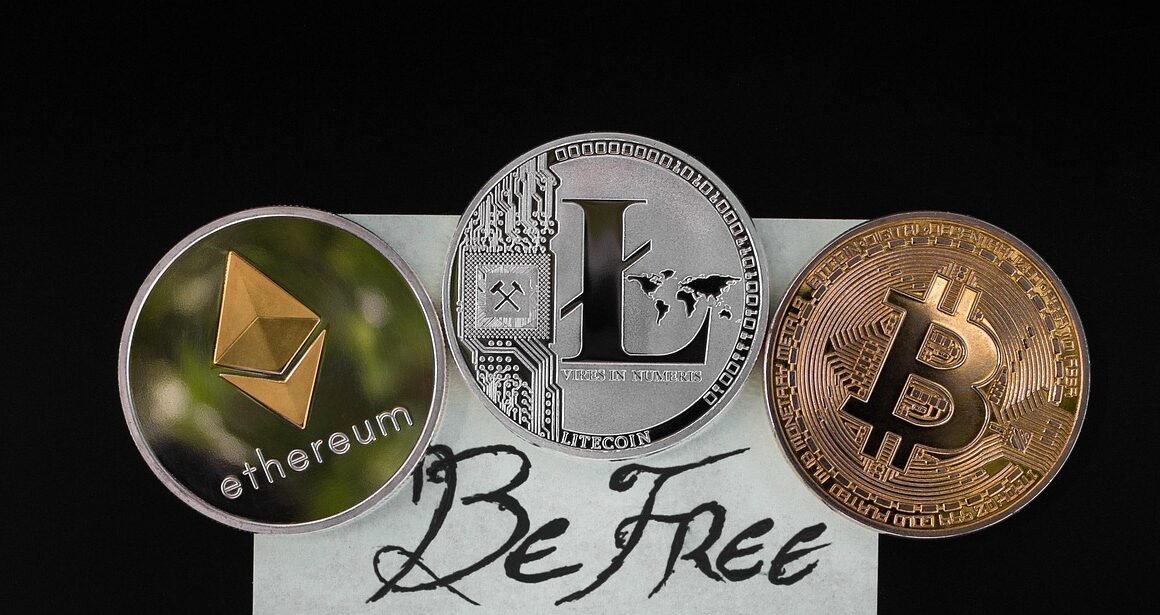Imagine a world where agreements are self-executing, tamper-proof, and don’t require intermediaries. This is the promise of smart contracts – revolutionary pieces of code that are transforming industries from finance to supply chain management. In this blog post, we’ll delve into the intricacies of smart contracts, exploring their functionality, benefits, and real-world applications.
What are Smart Contracts?
Defining Smart Contracts
At their core, smart contracts are self-executing contracts written in code. They automatically execute when predetermined conditions are met. Think of them as a digital vending machine: you insert the correct payment (cryptocurrency), and the machine dispenses the product (the agreed-upon outcome). No need for a middleman to oversee the transaction.
How Smart Contracts Work
Smart contracts operate on a blockchain network, a distributed and decentralized ledger. This means the contract’s code and data are replicated across numerous computers, making it incredibly secure and resistant to tampering. The process typically involves:
- Creation: The contract is written in a programming language like Solidity (for Ethereum) or Rust (for Solana) and deployed to the blockchain.
- Execution: When the conditions defined in the contract are met (e.g., payment received, a specific date reached), the contract automatically executes its instructions.
- Verification: The transaction and its results are verified by the network’s nodes, ensuring the integrity of the process.
- Immutability: Once deployed, smart contracts are generally immutable, meaning their code cannot be changed. This provides certainty and trust in the agreement.
Key Features of Smart Contracts
Several features make smart contracts particularly compelling:
- Autonomy: They execute automatically, eliminating the need for human intervention once deployed.
- Transparency: The code and transaction history are publicly visible on the blockchain (depending on the network’s privacy features), enhancing trust.
- Security: The decentralized nature of the blockchain makes smart contracts highly resistant to fraud and manipulation.
- Efficiency: They automate processes, reducing delays and costs associated with traditional contract management.
- Trustlessness: Parties can transact with each other without needing to trust a central authority.
Benefits of Using Smart Contracts
Increased Security and Trust
Because smart contracts are immutable and transparent, they offer a high degree of security. The code’s publicly auditable nature fosters trust between parties who may not know each other.
Reduced Costs and Time
Automating contract execution eliminates the need for intermediaries, such as lawyers and escrow services, significantly reducing costs. The speed of execution is also drastically improved, saving time for all parties involved. According to a report by Accenture, smart contracts could save financial institutions up to 30% in compliance costs.
Improved Transparency and Accountability
The blockchain’s inherent transparency ensures that all parties have access to the same information, reducing the potential for disputes. Each transaction is recorded on the blockchain, providing a clear audit trail and increasing accountability.
Automation and Efficiency Gains
Smart contracts streamline complex processes by automating tasks such as payment processing, data verification, and asset transfer. This leads to significant efficiency gains and reduces the risk of human error.
Use Cases for Smart Contracts
Decentralized Finance (DeFi)
DeFi is one of the most prominent use cases for smart contracts. They enable:
- Decentralized Exchanges (DEXs): Platforms like Uniswap and PancakeSwap use smart contracts to facilitate cryptocurrency trading without intermediaries.
- Lending and Borrowing Platforms: Aave and Compound use smart contracts to automate lending and borrowing, enabling users to earn interest on their cryptocurrency holdings.
- Stablecoins: Smart contracts manage the issuance and stability of stablecoins, cryptocurrencies pegged to a stable asset like the US dollar.
Supply Chain Management
Smart contracts can track goods as they move through the supply chain, providing real-time visibility and transparency. This can help to:
- Verify Product Authenticity: Track the origin and movement of products to prevent counterfeiting.
- Automate Payments: Automatically release payments when goods reach their destination.
- Improve Efficiency: Streamline the supply chain by automating key processes.
Healthcare
Smart contracts can securely manage patient data and automate administrative tasks in healthcare:
- Secure Medical Records: Ensure patient data is stored securely and accessed only by authorized personnel.
- Automate Insurance Claims: Simplify and expedite the insurance claims process.
- Clinical Trial Management: Track patient participation and ensure compliance with research protocols.
Real Estate
Smart contracts can streamline real estate transactions by:
- Automating Property Transfers: Simplify and speed up the process of buying and selling property.
- Managing Rental Agreements: Automate rent payments and enforce lease terms.
- Tokenizing Real Estate: Allow for fractional ownership of properties, making real estate investments more accessible.
Challenges and Limitations
Scalability Issues
Some blockchain networks, like Ethereum, face scalability challenges, which can lead to high transaction fees and slow processing times. This can limit the practicality of smart contracts for high-volume applications.
Security Vulnerabilities
While smart contracts are generally secure, they are not immune to vulnerabilities. Bugs in the code can be exploited by hackers, leading to significant financial losses. Regular audits and rigorous testing are crucial to minimize this risk. For example, the DAO hack in 2016 demonstrated the potential for devastating consequences from poorly written smart contract code.
Legal and Regulatory Uncertainty
The legal and regulatory landscape surrounding smart contracts is still evolving. There is a lack of clear guidance on issues such as contract enforceability and liability, which can create uncertainty for businesses using smart contracts.
Complexity and Development Costs
Developing and deploying smart contracts requires specialized programming skills and can be complex and expensive. This can be a barrier to entry for smaller businesses and individuals.
Conclusion
Smart contracts represent a significant advancement in how we create and enforce agreements. Their potential to revolutionize industries through automation, transparency, and security is undeniable. While challenges remain, ongoing developments in blockchain technology and growing regulatory clarity are paving the way for wider adoption of smart contracts. As the technology matures, we can expect to see even more innovative applications emerge, further transforming the way we interact and conduct business in the digital age. Understanding the fundamentals of smart contracts is becoming increasingly essential for anyone involved in technology, finance, or law. Embrace the future – the future is encoded.



